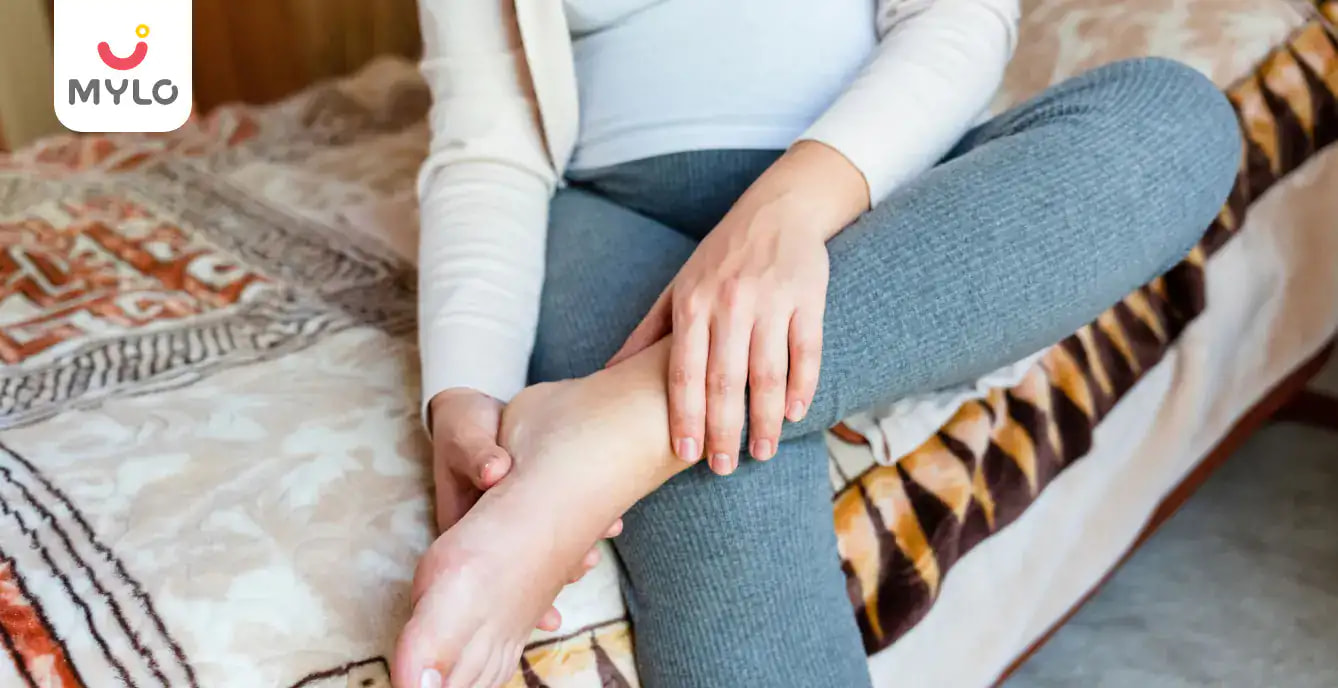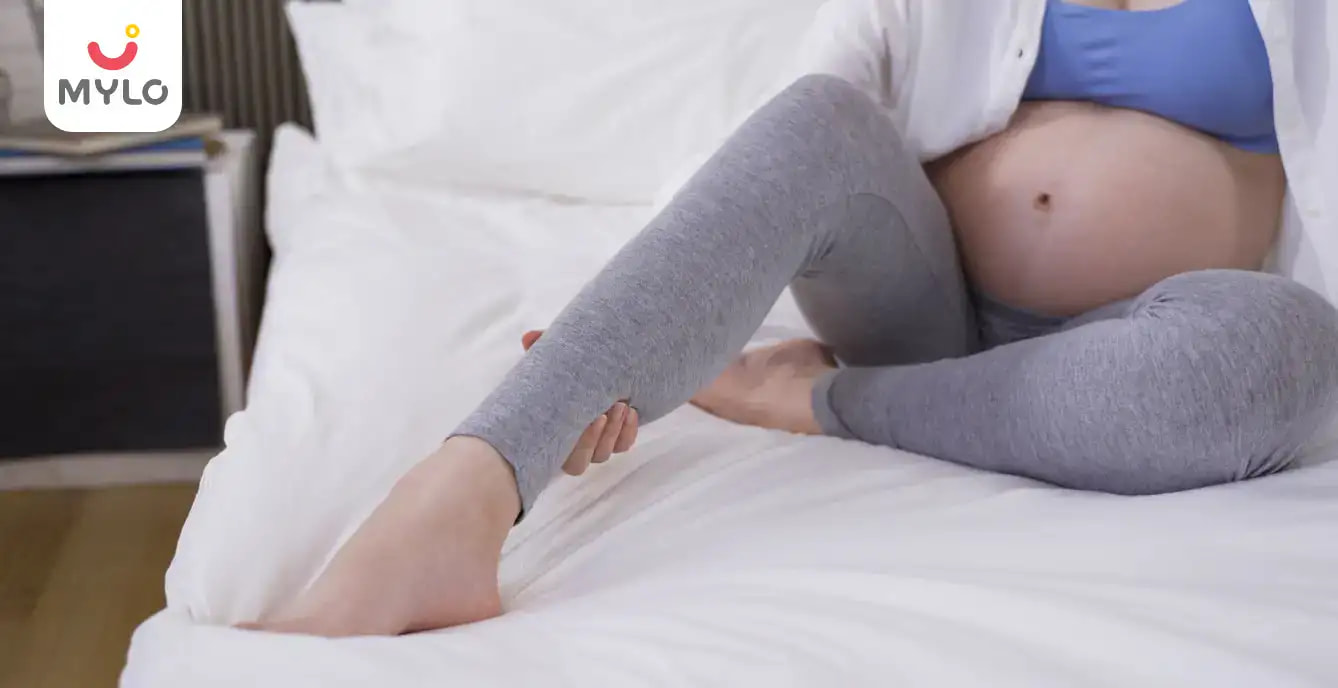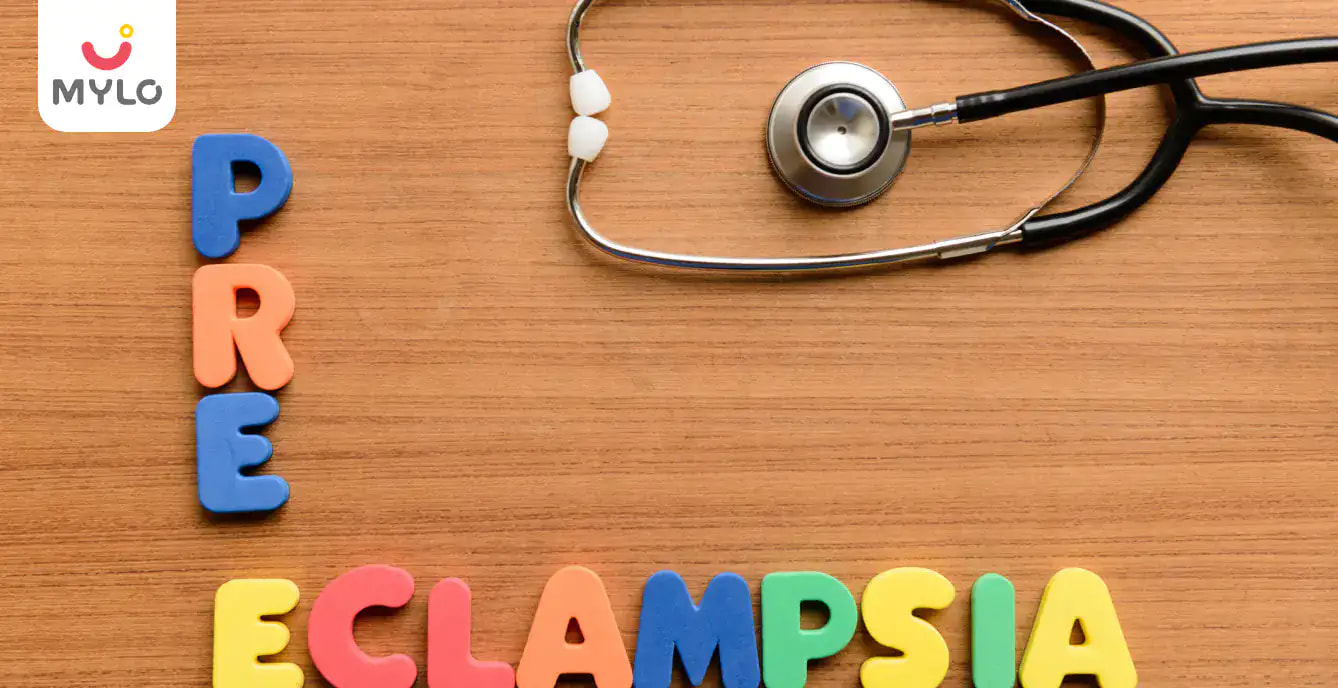Home

Pregnancy Journey

What are the Causes of Swelling or Edema During Pregnancy?
In this Article
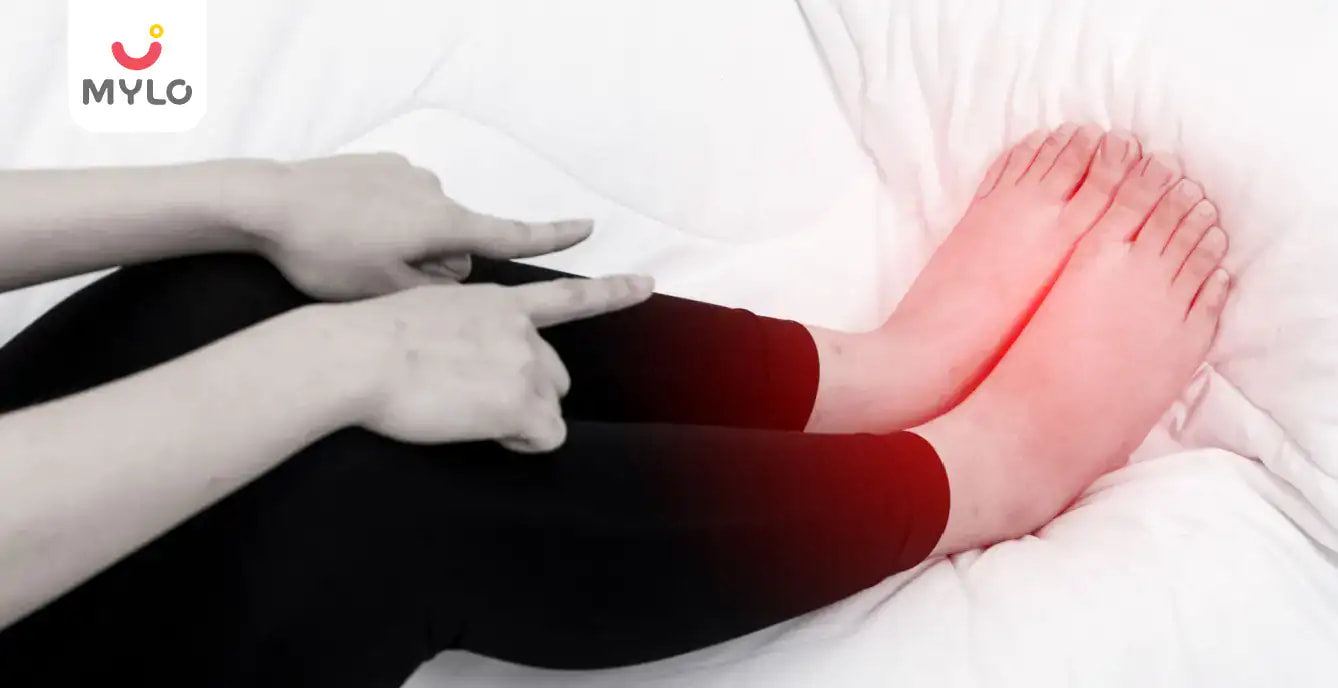
Pregnancy Journey
What are the Causes of Swelling or Edema During Pregnancy?
Updated on 30 June 2023
Swelling or edema in pregnancy is a very common problem that women encounter during pregnancy. A multitude of factors may cause swollen feet during pregnancy. While some of these symptoms are typical during pregnancy, they might signify more severe disorders like preeclampsia.
Causes of Swelling During Pregnancy
Swollen feet or other pregnancy-related swellings may be caused by the following:
1. Fluid Retention
The blood volume of a pregnant woman doubles. This surge may vary from woman to woman, with some reporting growth of approximately 100% over pre-pregnancy levels.
Fluid and hormonal changes might increase plasma in your blood relative to red blood cells, which is expected. A condition known as physiological anemia occurs as a consequence. A healthy pregnant woman might have up to 80% edema in pregnancy. However, the feet are the most common location for this condition to appear.
2. Dehydration
Due to the increased demand for water during pregnancy, fluid retention may indicate dehydration. Women who don't drink enough water are at risk of constipation, anemia, and edema if they don't stay hydrated. Dehydrated pregnant women may have a lower chance of delivering a healthy baby.
3. Certain medicines
Several over-the-counter and prescription drugs might raise the risk of edema. Some persons may develop water retention and peripheral edema due to using nonsteroidal anti-inflammatory medicines (NSAIDs).
Antacids are often used to treat heartburn in pregnant women. Swelling in pregnancy may occur if sodium bicarbonate-containing drugs are taken in excess.
4. Preeclampsia
As a result of preeclampsia, pregnant women are more likely to have swollen feet. A rapid rise in blood pressure in women who had previously had good readings is the hallmark of this illness. The presence of protein in urine is another telltale sign of this illness. Approximately one in every twenty-five pregnant women in the US is affected by this issue.
Women with preeclampsia are more likely to have swelling during pregnancy in their hands and feet. Thus, these signs should be taken carefully. Seizures are a possibility if preeclampsia is not addressed.
You might like: Suffering from Gas During Pregnancy? Here are the Causes, Prevention and Safe Home Remedies to get rid of it
When and where does a pregnant woman develop swelling?
The feet and ankles should be the only swollen parts of your body. Even if your fingers swell a bit, it shouldn't be noticeable enough that you can't wear your rings anymore.
When you're in your second or third trimester of pregnancy, you may notice a tingling sensation in your lower abdomen. This usually begins about week 22 and lasts until you give birth. Pregnant women are more susceptible to edema than the general population.
As the day progresses, you may notice that your feet and ankles swell. This is primarily due to gravity – if you spend more time on your feet, additional fluid will accumulate in your feet and ankles.
Warning Signs And Symptoms of Edema
Swollen feet, often known as edema, are an essential pregnancy symptom. It might be difficult for some women to tell whether a problem is just a minor inconvenience or something that requires immediate medical treatment. Signs of swollen feet include the following:
1. Your shoes are no longer the right size for your feet
Having to buy bigger shoe sizes is a common symptom of pregnancy-induced edema, even if it may seem trite to pregnant women. Compression stockings and reduced time spent on your feet might help alleviate pain. A flat, supportive shoe half a size larger than your pre-pregnancy shoes could also be good.
2. Stiffness while you stand
Standing for lengthy periods may induce the accumulation of extra fluid in the legs and feet due to gravity. Pregnant women may find it difficult to stand or walk for long periods.
3. Your skin's color, texture, and look changed
Even though swelling may be seen at first look, not all women know it. If you examine carefully, the skin is considerably tighter. Depending on your height, the feet and ankles may seem shorter or taller than the rest of your leg.
You can also adopt a healthier lifestyle during pregnancy with Mylo Pregnancy Care Routine which includes pregnancy yoga sessions, Garbha Sanskar sessions and consultation with gynecologists and health coaches. It can help you manage your weight trimester wise, reduce backache and leg swelling, boost energy levels and manage gestational diabetes and BP.
Final Words
Pregnancy-induced swelling of the ankles and feet is joint. Anxieties about bumps are understandable since they may be painful, cause your shoes to become uncomfortable, and even make you feel self-conscious so home remedies for swollen feet during pregnancy is the best solution. To keep yourself as comfortable as possible, it's essential to know what to watch out for and how best to deal with it.
References
- Davison JM. (1997). Edema in pregnancy. NCBI
- Institute for Quality and Efficiency in Health Care. (2006). Causes and signs of edema. NCBI



Written by
Lavanya Lavanya Teja
Get baby's diet chart, and growth tips

Related Articles
Related Questions
Hello frnds..still no pain...doctor said head fix nhi hua hai..bt vagina me pain hai aur back pain bhi... anyone having same issues??

Kon kon c chije aisi hai jo pregnancy mei gas acidity jalan karti hain... Koi btayega plz bcz mujhe aksar khane ke baad hi samagh aata hai ki is chij se gas acidity jalan ho gyi hai. Please share your knowledge

I am 13 week pregnancy. Anyone having Storione-xt tablet. It better to have morning or night ???

Hlo to be moms....i hv a query...in my 9.5 wk i feel body joint pain like in ankle, knee, wrist, shoulder, toes....pain intensity is high...i cnt sleep....what should i do pls help....cn i cosult my doc.

Influenza and boostrix injection kisiko laga hai kya 8 month pregnancy me and q lagta hai ye plz reply me

Related Topics
RECENTLY PUBLISHED ARTICLES
our most recent articles

Sex Life
Retrograde Ejaculation: Unraveling the Mystery Behind This Uncommon Sexual Dysfunction
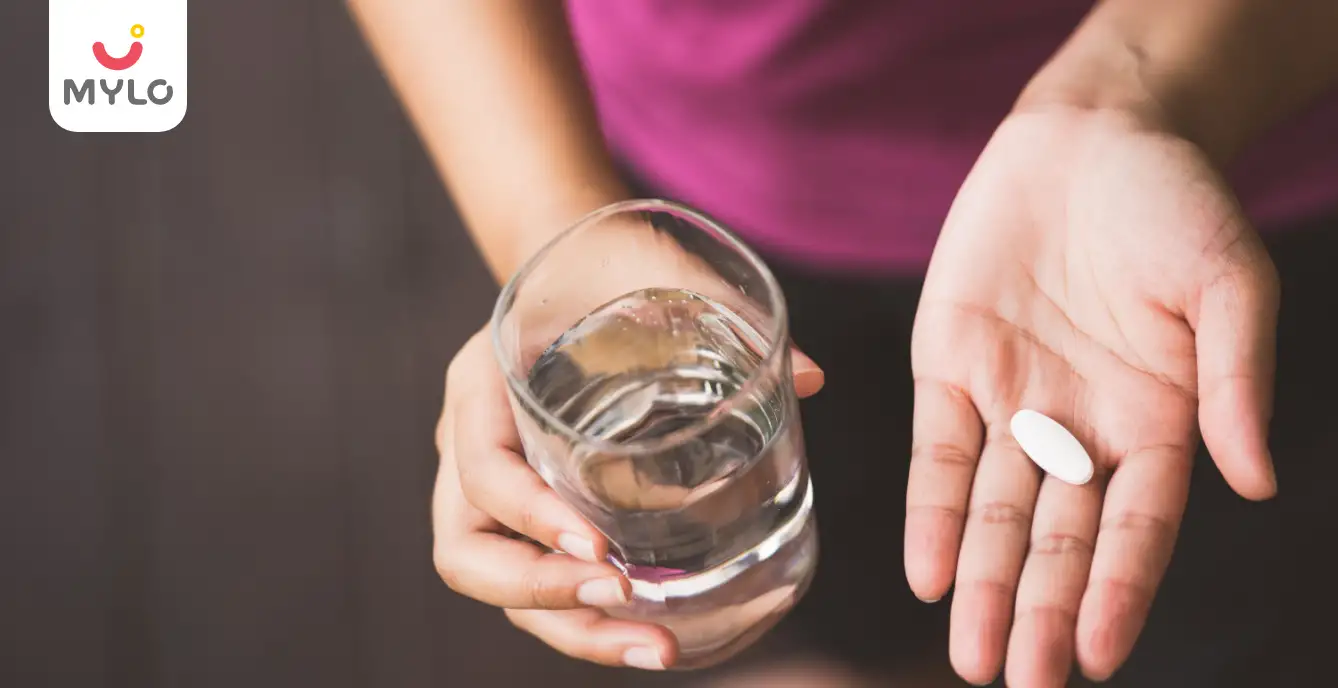
Conception
Fertisure F: The Key to Unlocking Your Fertility Potential & Chances of Conception
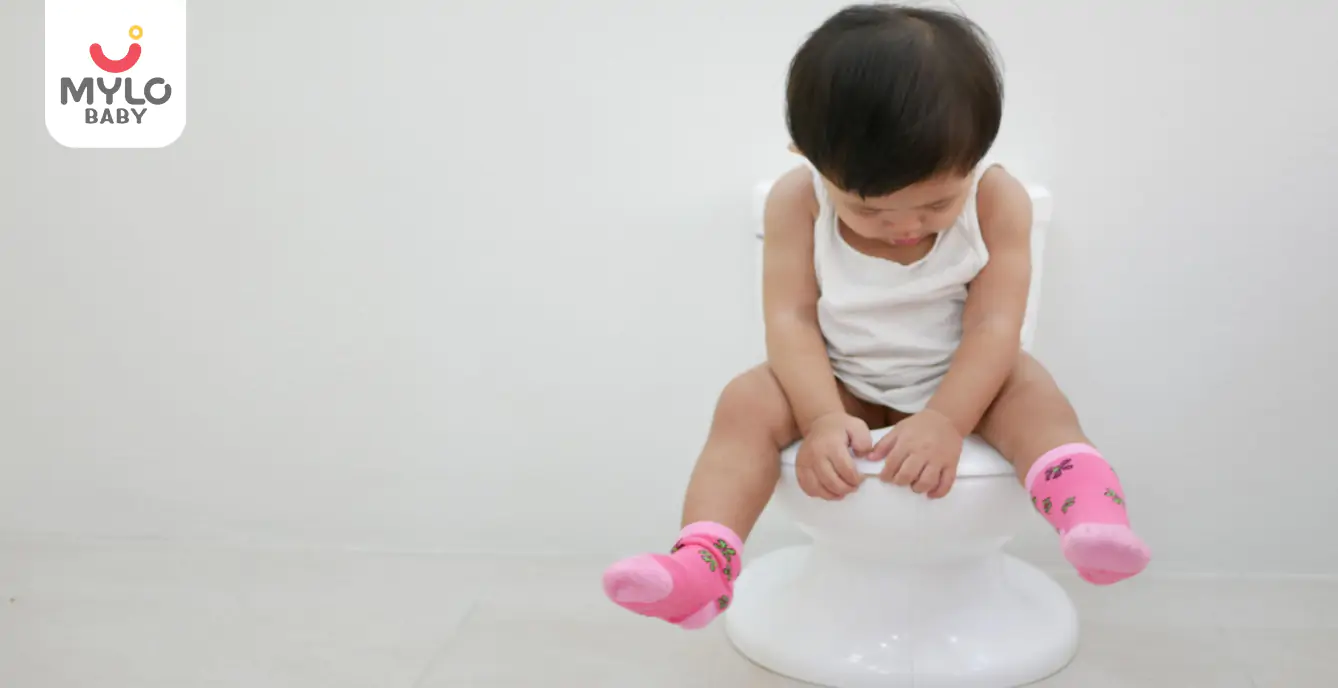
Potty Training
Here's everything you need to know if you want to give potty training to your infant or try Elimination Communication.

Fertility
Top 4 Kinds of Infertility Treatments to Cure Male Infertility

Sleep
Sleeping positions during pregnancy
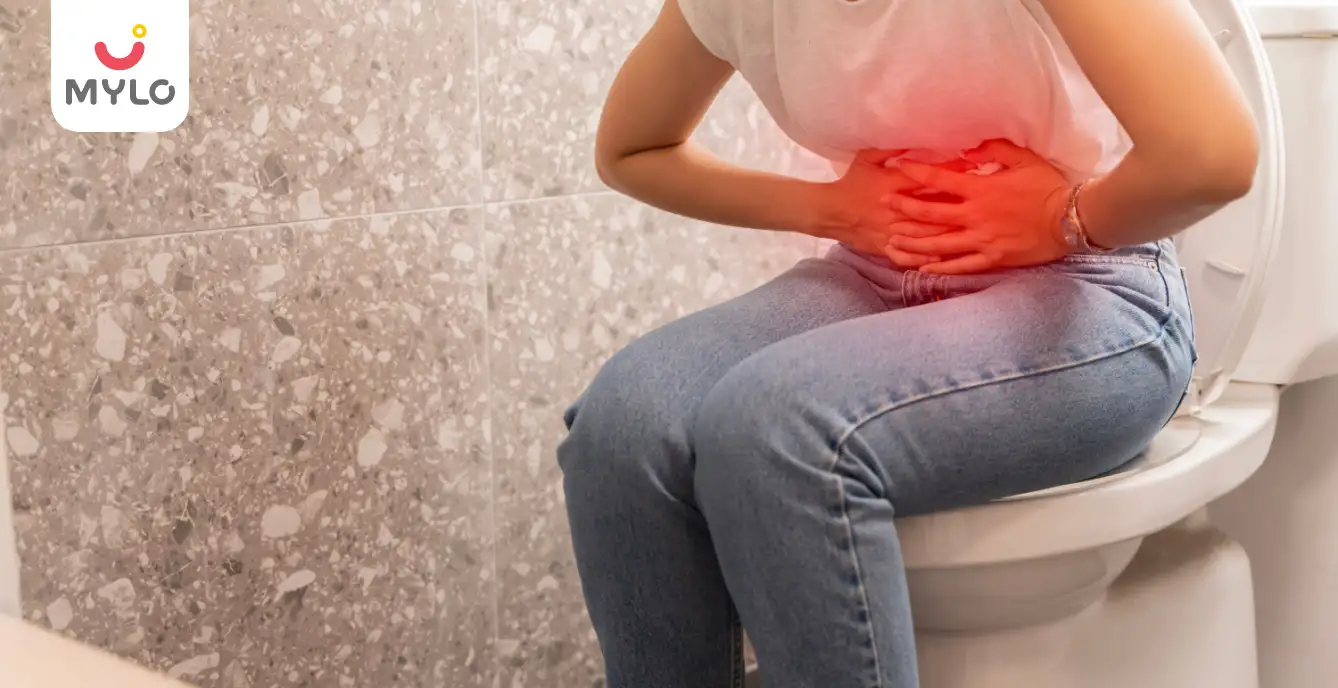
Sex Life
Burning Sensation After Sex: What Could It Mean
- Hormonal Imbalance in Men: What You Need to Know About Its Hidden Effects
- Kapikacchu: The Secret Ingredient for Boosting Fertility and Libido
- Safed Musli: The Secret Ingredient to Boost Your Immune System and Lifestyle
- What Causes Blurred Vision During Pregnancy & How to Deal With It?
- Suffering from Insomnia during your Pregnancy: Here are the Symptoms and Solutions
- Original Shilajit: The Key to Unlocking Your Health and Wellness Goals
- Pregnancy Induced Hypertension : Symptoms, Causes & Treatment
- 10 Amazon Prime Series to Look Forward to in 2023
- Nipple Shield 101: Everything You Need to Know Before Trying One
- All About Stem Cells, Their Usage and Potential Effectiveness in the Treatment of Different Diseases
- How to Manage Your Gestational Diabetes? Find 5 Easy Ways to Maintain the Sugar Level in Pregnancy and Stay Healthy!
- How to Get Rid of Flat Nipples to Breastfeed Your Baby Effectively
- The Ultimate Guide to Egg Retrieval: Everything You Need to Know
- Loss of Libido: Causes, Symptoms, and Treatment


AWARDS AND RECOGNITION

Mylo wins Forbes D2C Disruptor award

Mylo wins The Economic Times Promising Brands 2022
AS SEEN IN
















- Mylo Care: Effective and science-backed personal care and wellness solutions for a joyful you.
- Mylo Baby: Science-backed, gentle and effective personal care & hygiene range for your little one.
- Mylo Community: Trusted and empathetic community of 10mn+ parents and experts.
Product Categories
baby carrier | baby soap | baby wipes | stretch marks cream | baby cream | baby shampoo | baby massage oil | baby hair oil | stretch marks oil | baby body wash | baby powder | baby lotion | diaper rash cream | newborn diapers | teether | baby kajal | baby diapers | cloth diapers |



